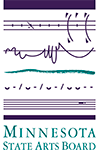If you meet me on the street and ask me how I am, I’ll tell you my hip hurts, my kitchen floor hasn’t been cleaned in months, and I am coming totally unglued over the idea that I will soon turn 50.
We memoirists love to tell the truth, even if it makes us look like total imbeciles.
For example, the other day in the barn I happened to look up at the exposed floor joists of our hay loft, and was stunned by the cobwebs. And then I remembered…
Before Melissa and I started our farm, we visited lots of other farms. While I have a terrible memory, I distinctly remember my reaction on one farm when I looked up at the floor joists of the hay loft overhead. Unsightly cobwebs covered everything—they were draped over buckets hanging on the wall, coating light fixtures and pitchforks, dangling in doorways. I fully expected to find a slower-moving farmer encased in a white, dusty web.
So when Melissa and I built our first barn, and those floor joists were fresh and clean, I resolved then and there never to let our barn be overcome by unattractive cobwebs. I would stay on top of those pesky spiders and not let them turn our barn into a cobweb museum.
Isn’t that adorable? Of course my goal was totally ridiculous. I can’t even keep the house clean, let alone two barns and one shed. The barn walls and ceilings and contents are coated with cobwebs. The cobwebs have cobwebs. So much dust has settled onto them that they look like works of art.
Cobwebs serve as a good metaphor, however. Farming can be so complex, so physically exhausting, that many farmers do not, and cannot, have those perfect farms you see in movies or magazines—the sparkling white picket fence, perfectly groomed pastures, spotless animals. We may have a pile of scrap metal by the driveway, waiting to be loaded up and taken away. We may have, on a bad day, a dead animal behind the barn, waiting to be loaded up and taken away. The lawn may not be recently mowed, and there might be hunks of duck poop on the sidewalk, if we even have a sidewalk.
So, yes, I admit it. We have cobwebs in our barns. That’s because on this farm, the animals come first. Everything else–mowing the lawn, moving that pile of rusty metal, washing the kitchen floor, clearing away cobwebs—comes last.




4 Responses
Catherine, I’m 51 now and I love cobwebs. My dust bunnies have grown to tumbleweeds. I don’t have duck poop. I have poodle poop. Being 50+ really is OK. Only thing that bugs me are the numerous “KRAFT” moments I have, “Kan’t remember a freaking thing.” My attention span is shorter and I talk crooked…but I have fun. I always act my shoe size. When is your birthday?
March 15…the Ides of March… (cue the dramatic music…)
I know 50 will be fine, and I’m grateful to have made it this far; just a little weirded out, that’s all.
Thanks for the KRAFT moments! I’ve been having those since my 30s.
Heh. In my ‘hood, we call it CRS (can’t remember s**t) syndrome.
Happy birthday, Catherine! I’m 54, and wouldn’t be 40 (or 30 or 20) again for anything. Oh, and my house is wall-to-wall cat hair. Speaking of, my boy Mackie looks just like your fluffy yellow cat.
I love your book and the blog; look forward to those forthcoming.
At least your cobwebs are a nice creamy colour, the ones on my transparent carport roof appear black and dirty!